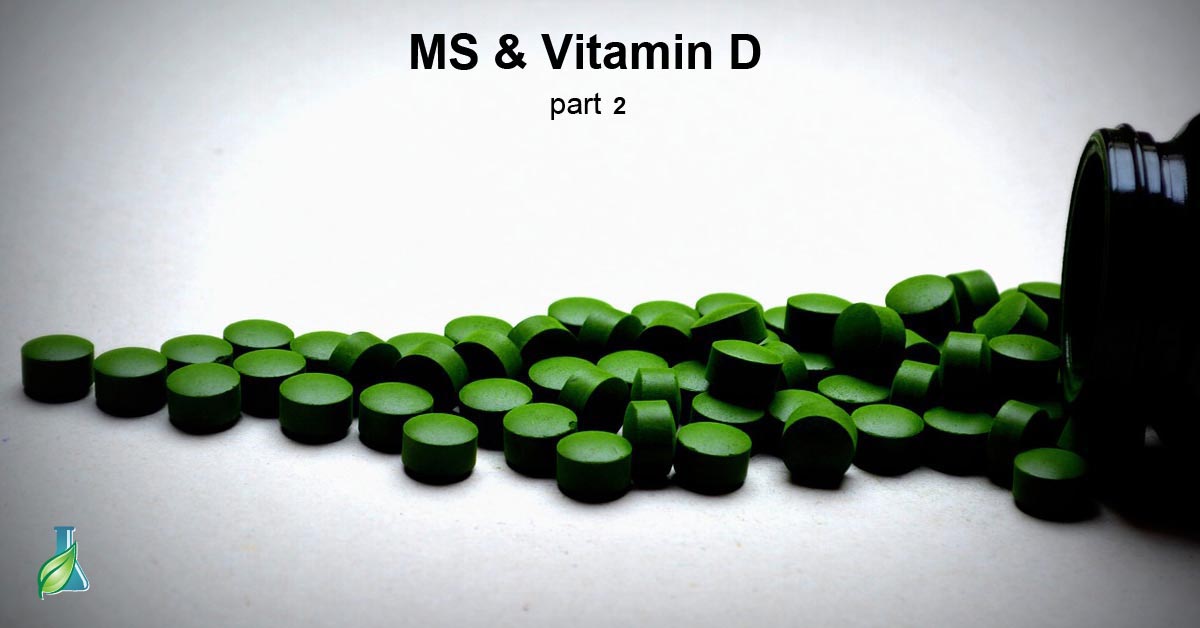
Goldberg’s Study
Goldberg continued to study the effects of vitamin D on MS, and in 1986, along with Co-researchers, conducted a study on vitamin D supplementation in MS patients, which they presented in the journal Medical Hypotheses.[1] The study was very small; only 16 patients were involved and there was no control group. In the study Goldberg compared the relapse rates of the patients before and after administering vitamin D supplementation.
Specifically, the supplementation consisted of 20g of cod liver oil per day. Large doses of calcium and magnesium were also given to the patients. The rates of relapses dropped dramatically in these cases.
Before taking the supplements, the patients’ relapse rates were 2.7 times higher than they were after the study, with a p value of <0.005. However, it should be taken into consideration that a number of patients dropped out of the study, so the results could not be considered conclusive. Still, all of the patients who stayed in the study and continued to take the supplements had a lower rate of relapsing than before.
Embry’s Study
Ashton F. Embry, PhD, and his colleagues also undertook a study on vitamin D and its effect on MS, and they published the results in Annals of Neurology. They compared vitamin D blood levels in 415 patients on a monthly basis. All of the patients were from a particular area in Germany and had a number of lesions that were detected by MRI scanning.[2]
The study found that those who had high levels of vitamin D in their bloodstream had low levels of disease activity. On the other hand, those with lower levels of the vitamin had higher levels of disease activity. The authors of this study concluded with recommendations that patients should receive supplements of 3,000 to 4,000 U of vitamin D per day, year-round.
Embry’s paper suggested that there was roughly a 50-70% reduction in the number of MS lesions when the UV exposure was at its peak in the summer, compared to that of mid-winter. So, the same sort of benefits may be seen if people get regular amounts of sunlight. In fact, this may be even more beneficial, as vitamin D levels were not particularly high in the study.
More Recent Studies
A 2005 study conducted in Finland by Merja Soilu-Hanninen, MD, PhD; and Co-researchers, measured the vitamin D levels of patients during relapses and compared them to the levels during remission.[3] The results published in Multiple Sclerosis indicated that the levels were lower during relapses, which helps one to conclude that vitamin D is related to the disease activity in MS. It should also be noted that, although the levels were lower during the relapses, they were also considered to be within the ‘normal’ range. This means that having normal amounts of vitamin D in one’s system may not be enough to reduce the likelihood of relapses. In other words, in order to protect oneself from MS, keeping high levels of vitamin D in the blood may be required.
The Journal of Bone and Mineral Metabolism published a fairly recent study conducted by Salih Ozgocmen, PhD; and Co-researchers from Turkey. Their research has shown that people with MS generally have significantly lower levels of vitamin D than people without the disease.[4] In fact, it was found that 61% of MS patients had low levels of vitamin D, and many of these patients had osteoporosis and muscle pain as well. Michele A. Faulkner, Pharm D; and Co-researchers conducted another study in the US that showed high levels of osteoporosis in MS patients, which suggests that they had a vitamin D deficiency. Their study was published in The Consultant Pharmacist journal.[5]
As a result of the studies listed above, and many others, most healthcare professionals now agree that there is some connection between the lack of vitamin D and the development of MS.
click here for MS and Vitamin D- part 3
2 Embry AF, Snowdon LR, Vieth R. Vitamin D and seasonal fluctuations of gadolinium-enhancing magnetic resonance imaging lesions in multiple sclerosis. Ann Neurol 2000; 48:271-272.
3 Soilu-Hanninen M, Airas L, Mononen I, et al. 25-Hydroxyvitamin D levels in serum at the onset of multiple sclerosis. Mult Scler 2005; 11:266-271
4 Ozgocmen S, Bulut S, Ilhan N, et al. Vitamin D deficiency and reduced bone mineral density in multiple sclerosis: effect of ambulatory status and functional capacity. J Bone Miner Metab 2005; 23:309-313
5 Faulkner MA, Ryan-Haddad AM, Lenz TL, et al. Osteoporosis in long-term care residents with multiple sclerosis. Consult Pharm 2005; 20:128-136
